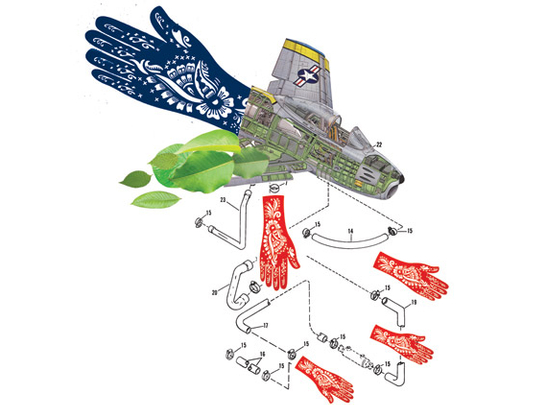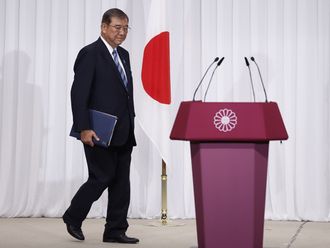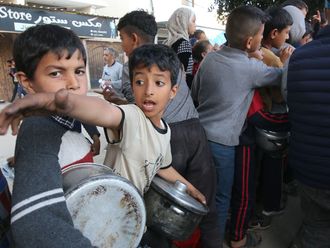
Throughout 2010, the pattern for negotiations over Iran's nuclear programme held to form. Diplomatic efforts focused on sanctions — and on what mix of them would be needed to bring Iran to heal. With just about every diplomatic approach having failed, a renewed focus on economic sanctions could turn out to be a bad idea whose time comes around again in 2011.
But sanctions, of course, have a dismal record in achieving their aims. So it might be useful to step back and take a hard look at our disagreeable negotiating partner — Iran — to see what should, and should not, be emphasised diplomatically.
There is nothing easy about negotiating with Iran. It is one of the oldest states in the broader Middle East. It has a deep culture. Despite its leaders' grim public image, Iran has a sense of humanism, as any Kurd who fled from Saddam Hussain's chemical warfare attacks along the Iranian border can attest. Bending, much less breaking, will not come naturally to such a country.
Iran also doesn't "play well with others." Most Americans remember it as the country that kidnapped US diplomats soon after its Islamic revolution in 1979, holding them for no apparent purpose for 444 days. No American diplomat has been stationed there since. American attitudes toward Iran are probably far more conditioned by that episode than people realise.
Iran is also divided. Its clerics bicker constantly, seeming to reflect the country's broader divisions. Iran's civilian authorities seem to have limited control over the military and the dreaded security services, which seem to answer to no one else but themselves.
Iran's Islamic Revolution, moreover, has run into a familiar contradiction: it cannot further its aims without accepting Westernisation and modernisation. Iran's youthful population — a product of the massive post-revolution baby boom — is increasingly frustrated and depressed; not surprisingly, young Iranians are having fewer children than ever. As the June 2009 election protests showed, Iran's urban youth desperately want to end the country's isolation, but they have increasingly found that the only way out of isolation is to study or work abroad — and never come back.
Iran does not live in a great neighbourhood, either. Turkey can be a good neighbour, but otherwise Iran is bordered by inhospitable states to the east and the north.
Iran has virtually no friends among the Arab states. As the world recently learned from the WikiLeaks release of US diplomatic cables, Arab leaders are no more tolerant of an Iranian nuclear bomb than is the US or its allies. Iran's only friends, it seems, are those — like the Chinese — who are more interested in its natural resources than its people.
While sanctions may deepen Iran's predicament, they are unlikely to break the diplomatic impasse on nuclear weapons. But, given the Iranian government's increasingly unhelpful reactions to diplomatic overtures, there is unlikely to be any interest in toning down sanctions. Indeed, just the opposite response is likely — efforts to tighten sanctions still further.
Yet, just as the US adopted a "bomb and talk" approach with the Serbs during the denouement of the Bosnian war, America must be willing to "sanction and talk" when it comes to Iran, thereby creating greater space for an eventual diplomatic strategy.
First, the US should consider establishing diplomatic relations with Iran and putting diplomats on the ground. This would not be an easy process, and could well meet considerable Iranian resistance. But the Iranians have diplomatic relations with other members of its main interlocutor in talks on its nuclear programme, the sanctions-minded P-5+1 Group (China, France, Germany, Russia, the United Kingdom, and the US), and restoring Iran-US diplomatic ties would shorten lines of communications and close the 444-day chapter of 1979-1981.
Second, even if a stronger bilateral mechanism is forged, it should not be allowed to displace the P-5 approach. The ability of this group to work together is critical to resolving this and future crises.
Action by neighbours
Third, the US should continue its efforts to encourage action by Iran's neighbours. While Turkey's lurch into the fray in 2010 may have been unwelcome, its interest in calming a situation involving an immediate neighbour is understandable. More problematically, the neighbouring states should also give more serious thought to addressing the situation, and should seek to reconcile their private and public postures.
Iran, after all, is not building an Islamic bomb. It is building an Iranian bomb that Arab leaders must take seriously. Private expressions of deep concern do not compensate for public nonchalance, and are hardly a basis for a successful policy toward a country whose nuclear ambitions could have a catastrophic impact on the region.
Finally, the Chinese and the Russians have been brought along principally by the US to a more robust policy, yet they remain reluctant. They need to convey through their own bilateral approaches to Iran a sense of urgency — and perhaps even express a little anger — at Iran's unwillingness to negotiate seriously.
Sanctions should be an element of diplomacy, not a substitute for it. Even as we look to tighten sanctions on Iran in 2011, we must strengthen our efforts to establish a strong political and diplomatic track.
— Christopher Hill is former US Ambassador to Iraq










